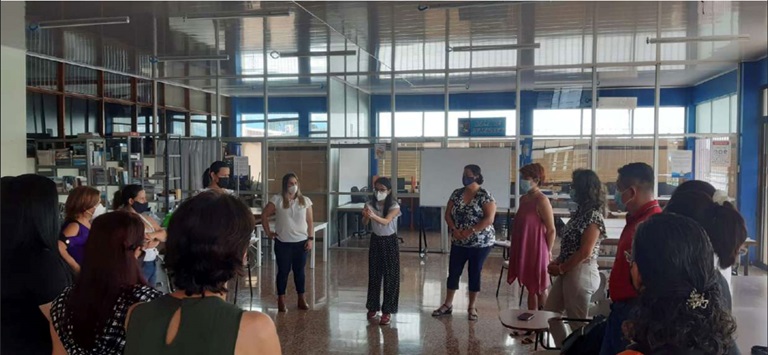
Costa Rica
In Costa Rica, action on the structural determinants of health equity is being advanced through the expansion of universal and targeted policies focused on informal work, social protection and migrant populations. SIMASHE is working closely with six cantons in the Brunca region (Pérez Zeledón, Buenos Aires, Coto Brus, Osa, Corredores and Golfito) to strengthen intersectoral collaboration and build a model of community participation. The approach emphasizes interventions for prioritized groups within the country, including women, migrants, Indigenous Peoples, and populations in border areas. These efforts contribute to the broader regional plan for post-COVID-19 recovery and resilience in Central America, supported by the European Union.
A key feature of the work in Costa Rica is the need to design and pilot models for addressing the social determinants of health beyond the direct remit of the health sector, as local governments do not have the authority to act as health care providers. Political commitment has been reinforced through local steering committees and engagement with municipal authorities, while additional national efforts have included perception mapping, storytelling initiatives, and participation in regional exchange and learning platforms.
Country achievement highlights
- Theory of change workshops for addressing prioritized social determinants of health in four cantons of the Brunca region, supporting the Costa Rican Interinstitutional Coordination Council’s work, with an estimated 131,390 direct and 369,992 indirect beneficiaries.
- A letter of commitment to development of the initiative signed by the mayors of each of the two municipalities/cantons.
- Development of conceptual and cognitive mapping of perceptions about the social determinants of health, among decision-makers, managers, service providers and the community.
Main activities 2025–2028
- Developing and delivering in-person training courses and workshops on the SDHE, tailored to Costa Rica’s specific historical, governmental structure and social context, building on foundations established during Phase I.
- Piloting the integration of the social determinants of health into primary health care in the Brunca region, through coordination between AMRO/PAHO, local governments and the Costa Rican Social Security Fund, with the aim of national scale-up.
- Analyzing and disseminating concept mapping on perceptions of SDHE, based on insights from policy-makers and service providers in the Brunca region.
- Undertaking an audit of the Costa Rican theory of change I developed for implementation at the local level, to evaluate progress and reinforce intersectoral approaches for addressing the SDHE.
- Promoting knowledge exchange and documentation of experiences through case studies, including contributions of case studies to the Special Issue of the “International Journal for Equity in Health”.
- Establishing monitoring systems on SDHE and SDH-related policies, both locally and nationally, to improve understanding of the mechanisms involved in the production of health inequities, and enable design, support and implement of targeted measures to reduce inequities.
